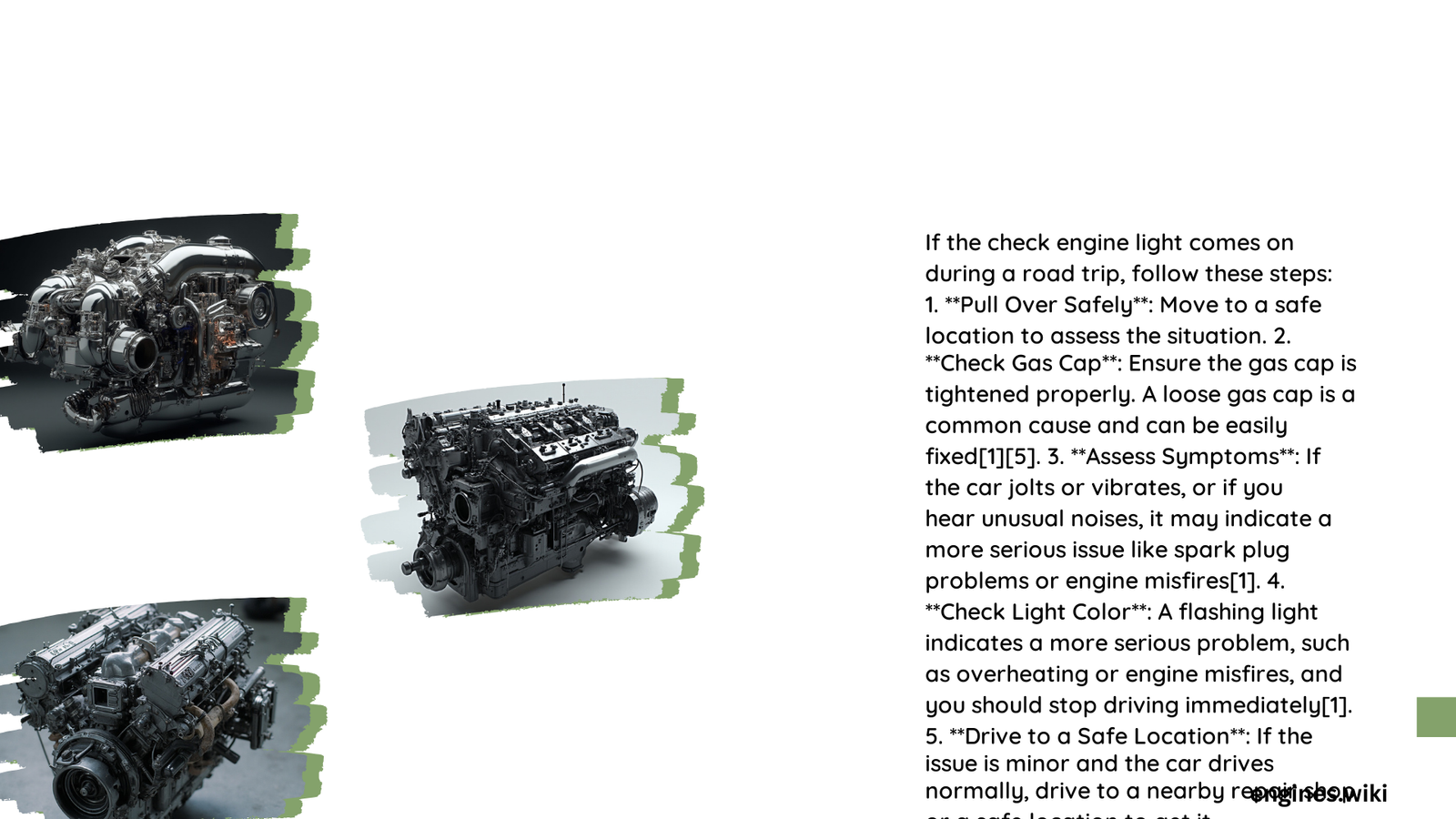When the check engine light illuminates during a road trip, it’s crucial to take immediate action. This guide provides step-by-step instructions on how to handle this situation, from initial assessment to potential causes and preventive measures. By following these guidelines, you can ensure your safety and minimize potential damage to your vehicle while on the road.
What Are the Immediate Steps to Take When the Check Engine Light Activates?
- Stay Calm and Assess:
- Pull over to a safe area
- Don’t panic
-
Evaluate the situation calmly
-
Check the Gas Cap:
- Ensure it’s tightly secured
-
A loose cap is a common trigger
-
Look for Other Symptoms:
- Unusual noises
- Vibrations
-
Jolting
-
Determine Light Type:
- Steady light: Less urgent
-
Flashing light: Requires immediate attention
-
Use Your Judgment:
- If no performance changes, continue driving cautiously
- Schedule a diagnostic check as soon as possible
How Can You Diagnose the Issue Using Code Readers?

Code readers are essential tools for diagnosing check engine light issues:
| Type | Cost Range | Features |
|---|---|---|
| Basic | $20 – $100 | Simple code reading |
| Advanced | $100 – $500+ | Detailed diagnostics, live data streaming |
Compatibility: Ensure the reader works with your vehicle’s make and model, especially for cars manufactured from 1996 onwards using OBD-II systems.
Accessibility: Available at auto parts stores, online marketplaces, and service centers like Jiffy Lube.
What Preventative Maintenance Can Avoid Check Engine Light Issues?
- Fluid Level Checks:
- Engine oil
- Transmission fluid
- Coolant
-
Brake fluid
-
Tire Pressure Monitoring:
- Adjust according to manufacturer recommendations
- Improves fuel efficiency
-
Reduces tire-related issues
-
Engine Inspections:
- Spark plug condition
- Air filter cleanliness
-
Belt and hose condition
-
Battery Maintenance:
- Check overall condition
- Clean terminals
- Remove corrosion
What Are Common Causes of Check Engine Light Activation During Road Trips?
- Loose Gas Cap
- Symptoms: Check engine light only
- Cost: Free (self-fix)
-
Tools: None required
-
Engine Misfires
- Symptoms: Flashing light, vibrations, backfiring
- Cost: $100 – $1,000+
-
Tools: Code reader for cylinder identification
-
Overheating Engine
- Symptoms: Flashing light, rising temperature gauge, steam
- Cost: $50 – $1,000+
- Tools: Code reader, thermometer, pressure test kit
By understanding these common causes and their symptoms, you can better assess the situation and take appropriate action when the check engine light comes on during your road trip.
Remember, while some issues may be minor, it’s always best to err on the side of caution and have your vehicle checked by a professional as soon as possible to ensure your safety and prevent potential damage to your vehicle.
